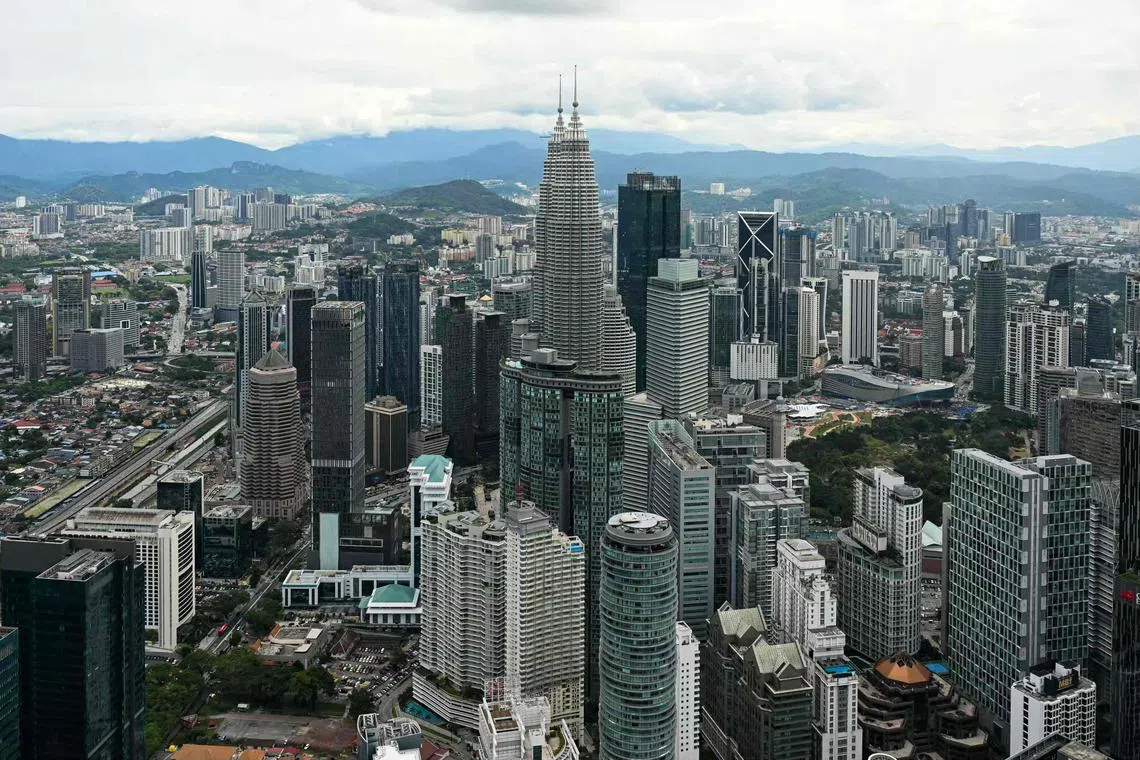Malaysia tightens rules on trans-shipment of foreign goods amid growing scrutiny by US authorities
Sign up now: Get insights on the biggest stories in Malaysia

The Malaysian government views any attempt to circumvent tariffs through wrong or false declaration as a serious offence.
PHOTO: AFP
SINGAPORE – Malaysia is imposing stricter rules to ensure exports to the US are properly documented, in a bid to curb the trans-shipment of products that do not originate in Malaysia.
The move comes amid growing scrutiny by the US authorities of countries such as China, which seek to sidestep American tariffs by routing exports via another country to disguise their true origin.
This practice, known as trans-shipment, has become a focal point in ongoing trade enforcement efforts by US Customs officials since the Trump administration unveiled its so-called “Liberation Day” tariffs on April 2.
Malaysia’s Ministry of Investment, Trade and Industry (Miti) announced on May 5 that with effect from May 6, it will be the only body that will issue non-preferential certificates of origin (NPCOs) for shipments to the US, stopping the issuance of these certificates by Miti-appointed organisations like local business councils, chambers or associations.
The NPCO is a document that helps to identify the origin of goods for international shipments in order to satisfy Customs or trade requirements of the countries the products are shipped to, the Federation of Malaysian Manufacturers said on its website.
The government’s new measure aims to eliminate loopholes that could enable the misuse of Malaysia as a conduit for goods seeking to bypass tariffs imposed by US trade regulations. Miti said in its statement that “it is unequivocally committed to upholding the integrity of international trade practices”.
“As such, the government views any attempt to circumvent tariffs through wrong or false declaration, whether related to the value or origin of goods, as a serious offence,” it added.
Malaysia faces a 24 per cent reciprocal tariff on its exports to the US, which is expected to come into force in July.
In the May 5 statement, Miti said it will also take additional measures to curb any offences involving trans-shipment to the US via Malaysia’s entry or exit points.
These include enhancing audits of NPCO applicants, and working together with the Customs Department to investigate and take action against offenders.
According to industry sources whom The Straits Times spoke to, some Chinese manufacturers have used Malaysia as a trans-shipment hub, allegedly going as far as falsifying certificates of origin in an effort to bypass the US tariffs.
An industry veteran, who requested anonymity due to the sensitivity of the issue, revealed that in some cases, the perpetrators pay as little as RM100 (S$30) to obtain fraudulent certificates of origin for containers bound for the US.
Addressing the matter in Parliament on May 5, Investment, Trade and Industry Minister Tengku Zafrul Aziz said: “For countries with no free trade agreements with Malaysia, like the US, we have an NPCO which is issued by business chambers, but due to this (trans-shipment) issue, Miti will take over the issuance of these certificates.”
He added that Malaysia has received “many complaints from industry partners” that “many items coming from other countries are stamped as if they come from our country”.
Datuk Seri Zafrul, who visited the US in late April to meet trade officials, also suggested forming a parliamentary caucus involving both pro-government and opposition MPs to debate the next steps to be taken by the government in handling the issue.
Malaysian Prime Minister Anwar Ibrahim, who officiated a special parliamentary session on the US tariffs on May 5, said that 11 per cent of Malaysia’s total trade is with the US, with the value of bilateral trade in 2024 amounting to RM325 billion.
Supporting the Miti move, the Associated Chinese Chambers of Commerce and Industry of Malaysia said in a statement on May 5 that the country’s tariff advantage has encouraged businesses to reroute shipments and misclassify products to evade higher export tariffs.
“This could distort trade data and lead to the dumping of foreign goods, threatening local MSMEs already facing tight margins,” it added, referring to micro, small and medium enterprises.
Harith Mustaffa is a journalist covering Malaysia for The Straits Times, with a focus on Johor.
Additional reporting by Lu Wei Hoong.



